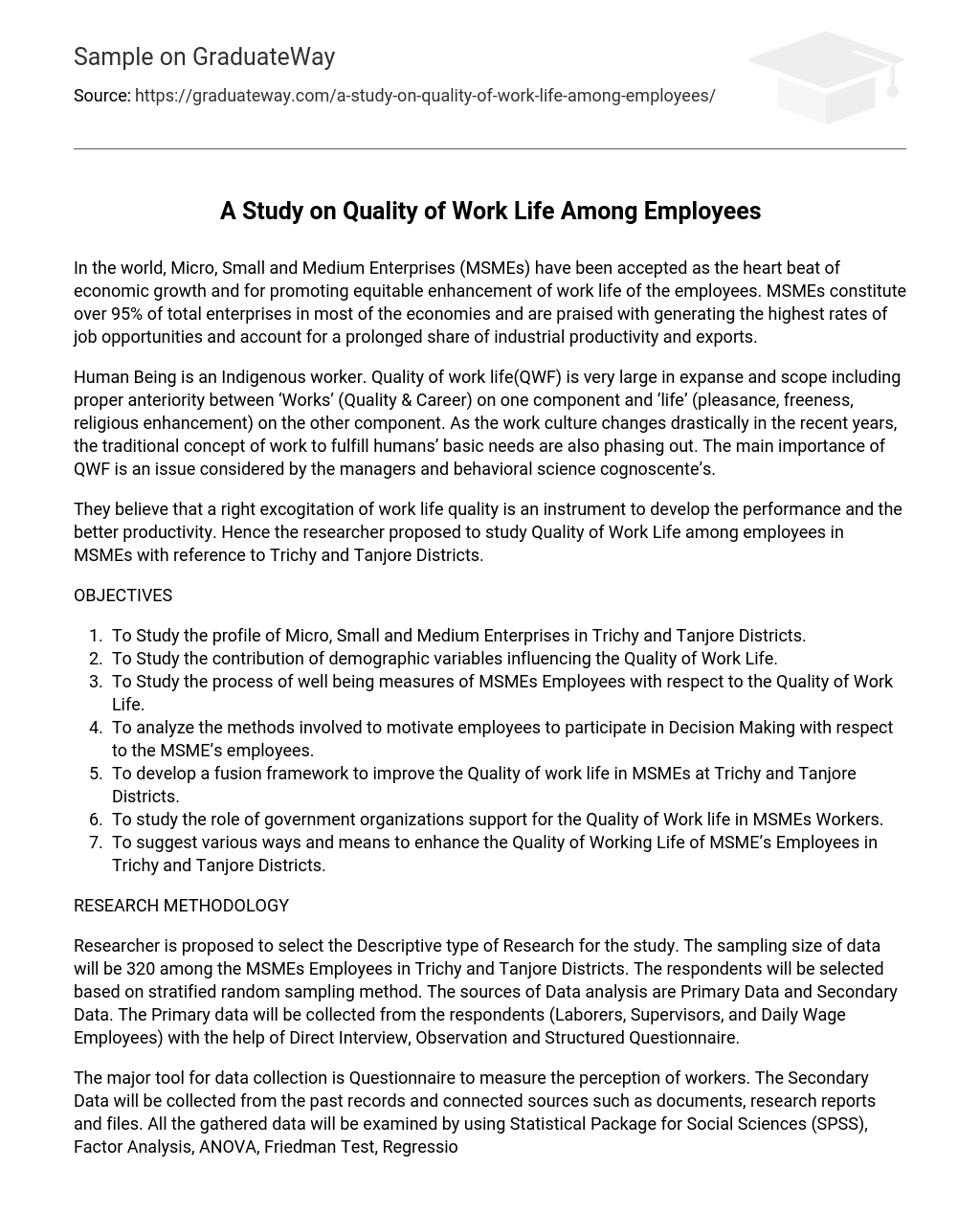MSMEs play a vital role in driving economic growth and fostering equity in the workforce. These enterprises constitute over 95% of businesses in numerous economies, and they are recognized for their pivotal role in job creation, as well as their substantial contributions to industrial productivity and exports.
Human beings, especially Indigenous workers, possess a diverse array of experiences and facets comprising their Quality of Work Life (QWF). This encompasses work-related factors like quality and career, along with personal elements such as enjoyment, autonomy, and spiritual development. In recent times, the nature of the workplace has undergone significant transformations by departing from the conventional notion that work solely fulfills fundamental human necessities. Consequently, managers and experts in behavioral science presently acknowledge the vital importance attributed to QWF.
They argue that improving work-life quality is key to enhancing performance and productivity. Therefore, the researcher aims to investigate the Quality of Work Life among employees in MSMEs in Trichy and Tanjore Districts.
OBJECTIVES
- To Study the profile of Micro, Small and Medium Enterprises in Trichy and Tanjore Districts.
- To Study the contribution of demographic variables influencing the Quality of Work Life.
- To Study the process of well being measures of MSMEs Employees with respect to the Quality of Work Life.
- To analyze the methods involved to motivate employees to participate in Decision Making with respect to the MSME’s employees.
- To develop a fusion framework to improve the Quality of work life in MSMEs at Trichy and Tanjore Districts.
- To study the role of government organizations support for the Quality of Work life in MSMEs Workers.
- To suggest various ways and means to enhance the Quality of Working Life of MSME’s Employees in Trichy and Tanjore Districts.
RESEARCH METHODOLOGY
The study suggests that the researcher should choose Descriptive type of Research. The data sampling size will be 320 and will include MSMEs Employees in Trichy and Tanjore Districts. The respondents will be selected using stratified random sampling method. Data analysis will be conducted using Primary Data and Secondary Data. Primary data will be collected from the respondents (Laborers, Supervisors, and Daily Wage Employees) through Direct Interviews, Observation, and Structured Questionnaires.
The primary method of data collection will be through the use of a Questionnaire to assess workers’ perceptions. Additionally, Secondary Data will be obtained from various sources including past records, documents, research reports, and files. To analyze the collected data and evaluate the quality of working life, Statistical Package for Social Sciences (SPSS), Factor Analysis, ANOVA, Friedman Test, Regression, and Correlation Analysis will be employed. Demographic variables will also be gathered through the collection of personnel data.
CHAPTERIZATION
- Chapter 1 deals with the concepts of Quality of Work Life in Micro, Small, and Medium Enterprises Employees and various components of MSMEs Employees.
- Chapter 2 describes the profile of Micro, Small, and Medium Enterprises.
- Chapter 3 Review of Literature deals with the Historical Roots of Quality of work life.
- Chapter 4 deals with the Research Design with the contents of Sampling, Data Collection, Data Analysis, and various tools like ANOVA, Regression, Correlation, Factor Analysis, Friedman Test.
- Chapter 5 concludes with the Findings of the Research, Suggestions and Conclusions.





